Is your clutter making a comeback…again? You tidy up, you declutter, but somehow, all those piles and projects sneak right back into your life. If you’ve ever felt defeated when the mess keeps resurfacing, this episode will speak right to your heart. Join Kathi and...
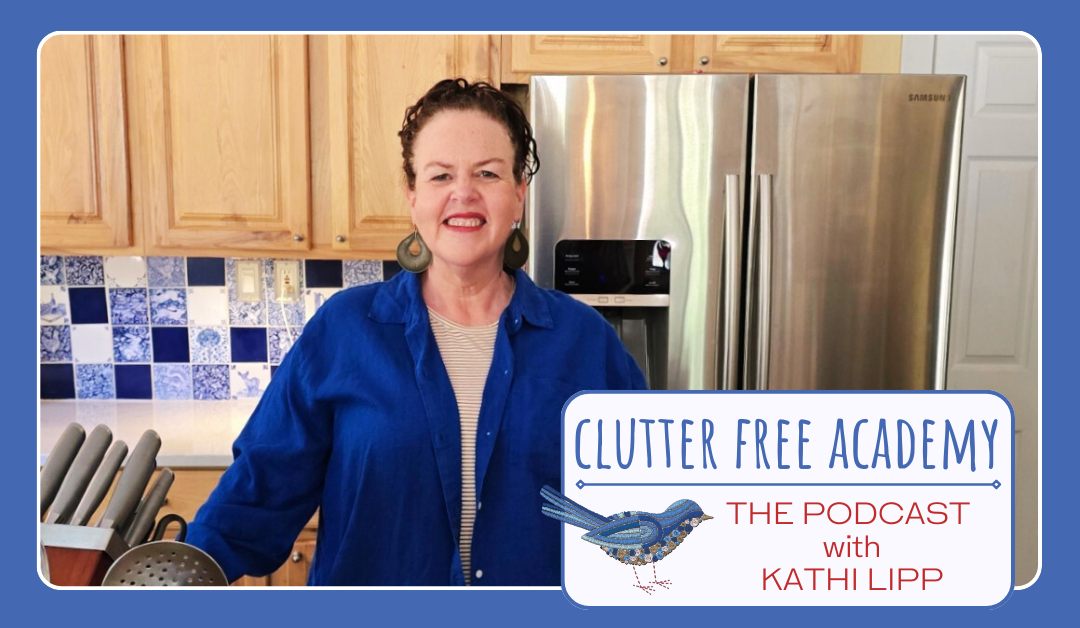
#681 – Embracing Empty Spaces: A New Approach to Clutter
#681 – Embracing Empty Spaces: A New Approach to Clutter
Join Kathi Lipp and the creative genius, Tenille Register, as they explore the journey of embracing space over stuff to live a clutter-free life. In this episode, you’ll discover
- Practical strategies for decluttering with purpose.
- How choosing space can lead to a peaceful home environment.
- How to start your own decluttering tradition.
Tenille shares her insights on storing with intention using creative solutions like her shape sorter technique for your household items. If you’re seeking inspiration and practical steps to reclaim your space, this episode is a must-listen.
Sabbath Soup: Weekly Menus and Rhythms to Make Space for a Day of Rest
Kathi Lipp gives readers an easy-to-follow process for meal planning and prep, so that they can enjoy a full day each week of real rest and refreshment.
Could you use a break from cooking (and everything else) once a week? Not only is rest vital for your mind and body, it’s good for your soul too. God designed us to enter into Sabbath rest one day per week, but as you know, meals still need to be made. Your family still needs to be fed.
Sabbath Soup includes convenient, seasonal meal plans that take the guesswork out of shopping and cooking. More than just a collection of delicious recipes—including main dishes, breads, breakfasts, desserts, salads, sides, and yes, soups—this is your guide to establishing a weekly rhythm and routine of meal planning and prep that allows you to have a true day off.
Do something good for your soul and experience the peace that comes with a full day dedicated to spending time with God, family, and friends. Savor your Sabbath as you proudly proclaim, “Soup’s on!”
Order your copy of Sabbath Soup: Weekly Menus and Rhythms to Make Space for a Day of Rest here.
Links Mentioned:
FYI: Some product links may be affiliate links. If you buy, I may earn a small commission at no extra cost to you. Thanks for your support!
Clutter Free Resources:
Support the podcast! https://kathi.link/coffee
Join our Clutter Free Academy Facebook Group
Order Sabbath Soup here
Let’s stay connected
To share your thoughts:
- Leave a note in the comment section below.
- Leave an honest review on iTunes. Your ratings and reviews really help and I read each one.
Subscribe on iTunes or subscribe to our newsletter now.
Meet Our Guest
Tenneil Register
Tenneil Register can be found creating, repurposing, decorating, gardening and welcoming guests to their reclaimed barn storefront. She and her husband, Cowboy, established rural roots for their blended family of 7 in their DIY ranch home in Iowa. Connect with her on Instagram for practical ideas to reclaim your home.
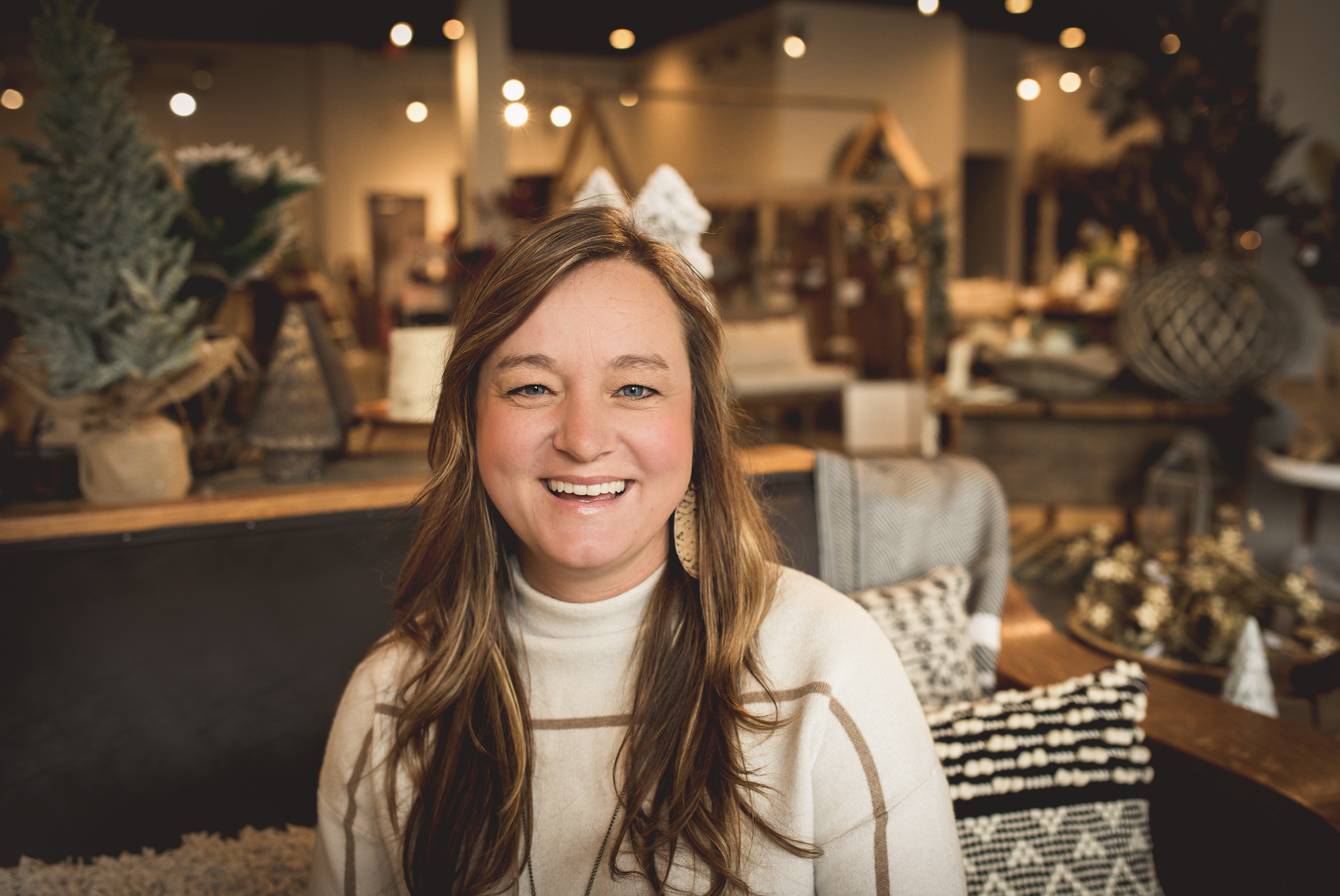
Transcript
Kathi Lipp (00:11)
Hey friends, welcome to Clutter Free Academy where our goal is to help you take small doable steps every day to live with less clutter and more life. I’m back with one of my favorite human beings on the planet. It is Tenille Register. Hey, Tenille.
Tenneil Register (00:25)
Hey Kathi!
Kathi Lipp (00:28)
So here’s the thing I know about you I would not consider you one of the more naturally cluttery people in my life But I will say this I think you have just about more moving parts than anybody else That then I know I there are some people They you know, we talked about this with being overwhelmed. Some people have ? Demi toss cup size platters
Tenneil Register (00:44)
Yeah
Kathi Lipp (00:54)
And you have a turkey size platter about how much you do and how much you accomplish but all of that accomplishment leads to clutter and Here’s what I know about you. No, I don’t know this about you, but i’m going to posture this about you most people downsize because they have to But you have chosen to do it for peace. Does that make sense?
Tenneil Register (01:20)
It absolutely does because in these endeavors, we have access to a lot of square footage that we could continue to store and store. And because our businesses are things like Airbnb’s apartments, retail store, I could justify keeping almost anything because we will use it. So yeah, I would say I am very intentionally, actually it’s a July tradition for us.
Kathi Lipp (01:28)
Thank you.
Right.
Tenneil Register (01:50)
to get rid of things just for the sake of getting rid of them to make sure that we don’t kind of go over the threshold of how many things we can be responsible for.
Kathi Lipp (02:00)
Okay, so tell me about this July tradition because explain to me why we pick the hottest month of the year. Like that’s my favorite excuse. I can’t declutter out, you know, in the barn or the garage because it’s just too hot. Yeah, so tell me more about this. I love this.
Tenneil Register (02:22)
Because many people like you are celebrating Lowe by July, so it’s our slow season.
Kathi Lipp (02:29)
Nice! okay, that makes so much sense, yes!
Tenneil Register (02:34)
Truly it’s just our downtime. A lot of people are vacationing. There’s not a lot, ? July the yard work even kind of evens out. Like you have to mow but not pulling a ton of weeds. it’s just kind of a slow season. And so we just ? roll up our sleeves and do it. And we have done everything from like literally bringing in a roll off dumpster to our driveway so that there’s no ? like decision making involved. It just went in the dumpster.
Kathi Lipp (02:43)
Yes, for us too.
Yes.
Tenneil Register (03:03)
? And you guys, that’s not irresponsible. We are repurposers. So if we are not repurposing it, it is not repurposable and that’s why the dumpster. ? Or just like making frequent trips for ice cream and dropping off at the Goodwill. This year has not been a dumpster year, but I would say every three to four years we have a dumpster worthy purge.
Kathi Lipp (03:10)
Mm-hmm.
Right.
Yeah.
Yes, and you know what? I think that that is one thing that as cluttery people You know, we’ve been told You know reuse re, you know reduce recycle and here’s what I know A lot of cluttery people tend to keep stuff because they don’t know what to do with it. They’re like, okay if I throw this away i’m a bad person and
Tenneil Register (03:48)
Yeah.
Kathi Lipp (03:54)
I think that there is no value, there is no virtue in keeping it in your house or in your space as opposed to the dump. ? I think the virtue comes when, if it can’t be donated, if it can’t be reused in some way, don’t bring it into your house again, but it’s okay to get rid of it. Does that make sense? Am I saying that correctly?
Tenille knows I’m recovering from COVID, so she’s gonna explain things that are jumbly out of my mouth, but she can make it make sense.
Tenneil Register (04:20)
It was.
just have a good example from my office closet clean out. I had these stacks that I bought on clearance of like little stickers that you mark your planner with or different little notepads and that kind of thing. And I bought them when I was coaching teachers because teachers like those kinds of things. And so I had this stack of them. I will…
Kathi Lipp (04:30)
Please.
Mmm. Yeah.
Tenneil Register (04:51)
I was about to like say, you know, I could take that out to California when I meet with the authors and give them a goodie bag. And then I thought to myself, me, why would you fly this stuff all the way across the country? That’s silly. And so I put it in the goodwill bag. But by the time I finished cleaning out the closet, the truth was the monetary value of what was in that goodwill bag is not worth what they’re going to pay somebody to sort through the bag.
Kathi Lipp (04:59)
Mm-hmm.
Tenneil Register (05:20)
And so I put it in my car intending to go to the Goodwill, but when I went to the trash can, I just put it in there. It’s a small sack. The energy used in gas, thought, then them sorting it. There wasn’t enough in there to be worth monetarily doing that. And for me, I think you said it right. I keep it out of guilt. So giving myself permission to almost like rebel against the system and just throw it away strengthens my decluttering skills.
Kathi Lipp (05:21)
Hmm.
Yes. ?
Right.
Yes, and it’s the resolve to you know, I threw this way do not bring it back into the house Do not bring similar things back into the house
Tenneil Register (05:59)
Right, because I threw it away, I’m not going to pick those up on clearance the next
Kathi Lipp (06:03)
Exactly, exactly. Yeah, here’s the thing. Why do we think we have to keep something just because we have the room? Like, why do we why are we afraid of that space? Do you think?
Tenneil Register (06:17)
I don’t know, when we bought our home to fight against that, I tried to keep an empty drawer in each room. As a way of saying, like, I don’t want to give into this ideal that because we have the space, we should fill it, or because we have the space, we should keep the items. And so I almost think…
Kathi Lipp (06:25)
Mmm, really?
Yeah.
Tenneil Register (06:41)
I think we probably have an idea that we’re not being a good steward of things or that we don’t have our adult self together if we have gaps, right? But the same way we’re learning gaps in our schedule allows us to love people, I’m learning that an empty drawer allows me to love someone too because I can tell the guests that drawer is empty, feel free to use it.
Kathi Lipp (06:46)
Mm-hmm.
Mm hmm. Yeah.
Yeah, I do have empty drawers in all of our guest rooms, but there are other spaces that are filled to the brim. so may I, you know, I am still deconstructing my cluttery ways and I want to live a life of peace. And when everything is filled, like if I bring something new into the house and I have to get rid of something in order to make room for it.
Tenneil Register (07:08)
Yeah.
Kathi Lipp (07:31)
That’s not a peaceful circumstance because that new thing has to sit out until I find the new place for it. And so as ? I am more of a maximalist than a minimalist, but I need to become less afraid of empty spaces. And that’s something I’m working on. Okay, friends, we’re going to take a little break and we’re going to come back and I want to talk about what happens when you choose space over stuff. What does that do to your brain?
What does that do to your heart and how can we actually do that? So we’re going to take a quick break and come right back. Okay, guys, we are back. I am here with Tenille Register, who is just, I think she’s probably mentally ill because she says she keeps an empty drawer in all of her rooms to remind herself. I don’t even know what that would feel like and I need to figure that out. So what happens?
What’s the feeling for you when you are choosing space? How does that feel for you?
Tenneil Register (08:35)
I feel like I’m leaving room for something else good to come into my life. I know that sounds kind of like spiritually strange, but I just feel a little woo woo. But if I’m overflowing with things, then literally if I bring a new thing home or if somebody gives me a gift, then I have this huge project of figuring out where to put it. Where if I have some space,
Kathi Lipp (08:41)
Mmm. ?
Woo woo, but I love woo woo, go for it.
Yeah.
Tenneil Register (09:03)
And I am not the master of this, it’s a work in progress. Like I said, the closets that I cleaned out yesterday, I actually called my husband and when I cleaned out these closets, I got rid of a filing cabinet and a dresser that were in these two closets. And I said, okay, but what are we gonna put in them? And then as we talked about it, what if it was just an empty closet with floor space?
Kathi Lipp (09:30)
I don’t even know how to think about that, be honest.
Tenneil Register (09:36)
Right, because I felt like I needed to add like a bookshelf for some bins of storage or a bench that we could put something under. Like naturally my brain tried to do that. And so I’m in this place where I’m like, what if there was just an empty closet so that if I got an Amazon box at the same time company was coming, I had an empty closet to go set the Amazon box in until I had time to open it. Like, I don’t know, I haven’t mastered it, but this is my what if that I’m in right now.
Kathi Lipp (09:42)
Mm-hmm.
Right.
Okay, I have to tell you, I have done this in our front closet ? because that’s the place where, know, normally when you get an Amazon box or something like that, you would put it, but it’s always been packed to the gills. So instead, what I did was I bought ? some storage things for that, which I’ll talk about in our things that have earned a place in my clutter free home. And
? Now, if something comes into our house, that can be its temporary holding place. And it feels so good to say it doesn’t just have to get piled on top of something. And that makes it, yeah, it’s, you know, we don’t need more bins necessarily, we need breathing room. And sometimes the bins can help us with the breathing room. But sometimes it’s just organizing our clutter. And we need less of that.
Tenneil Register (11:06)
Yeah.
Kathi Lipp (11:07)
Yeah.
So, where do you start?
With this idea it because it feeling very radical and I’m sorry. My dog is now climbing on my desk right now Little distracting we’re gonna get her off. Yes. She she she does this with you and with Tonya she really likes She knows you guys. Yes. So yes, she she likes to come up and just check out if that’s her friend Okay, please continue
Tenneil Register (11:21)
?
She knows.
Yeah, so I mean, I think the one thing is just choosing the space that you’re going to have empty, right? Like, is it going to be the tiniest little drawer? Is it just going to be eight inches on the shelf, you know, in the pantry? Like, where is the empty place going to be? And then it’s almost like playing a game with yourself. How long can I leave this empty?
Kathi Lipp (11:48)
Mm-hmm.
Yeah.
Tenneil Register (12:05)
before you even know how you’re gonna use the empty space. I know this sounds like radically strange, ? but for example, like in our bathroom, the bottom drawer is what I decided to leave empty. So what that meant was like, actually we don’t need as many bath towels as we have, downsizing the number of bath towels that we have. No, the water pick, no one has pulled that out in three years to use the water pick. We might’ve paid a lot of
Kathi Lipp (12:18)
Mm-hmm.
Yes.
Right.
Tenneil Register (12:34)
it and been excited about it, but we’re going to get rid of that. And then we’re going to have this empty kind of holding space. So I think, I think it’s almost just like trying to set a rule for yourself and like looking at it as a challenge. And of course, there has to be room for grace and flexibility. If I find them overflowing, I may have to put some stuff in that drawer. The key is to come back to it and review it.
Kathi Lipp (12:58)
Exactly.
Right and to you know, all that back stock we have like in my bathroom i’m like Why am I keeping so many candles in my bathroom? Like that just doesn’t make sense It’s time to get rid of some of those so there can be that space because if I can’t put something down because that space is so crowded Then there there need to be some hard decisions and my tips would be start with the least emotional space I think when we go and we say we want to create space
The first thing we think about are grandma’s photo albums because it’s like there’s an emotional anchor to that. Don’t start there. Start with the bathroom towels. Like, do I really need eight towels in my bathroom? Or can two hanging in the bathroom and two back up be enough? What is enough for that? And then celebrate one win. Take a picture. If you’re in our free group.
Clutter-free Academy or our paid group clutter free for life take a picture because the rest of us get this right there may be people who don’t get how important this is but we all get it and creating this visual space like one of the things I’m really convicted about is not convicted but the place where I need to do this is there I I Have a couch table behind my couch in the living room
that kind of stays the same all year. And wouldn’t it be fun to put, ? Roger just gave me the most beautiful picture for Mother’s Day. It’s like hand painted, it has a rabbit on it. I love it so much. Why am I putting that in the kind of chaos of my kitchen instead of pulling that into the living room and putting some branches in it or something like that? So I’m gonna go do that today. I’m gonna clear off that place.
I think we just get comfortable with something that we’ve liked and it’s hard for us to imagine. It takes energy for us to imagine something else. But this is your challenge. So, you know, what would you downsize right now? Is it a drawer? Is it a closet? Is it a table? For me, it’s going to be a table. Anything come to mind for you Tenneil?
Tenneil Register (15:18)
? Yes, it’s going to be ? continuing here in the office, like how I store my office supplies, right? Like I have a cubby that I like, I have a tray that I don’t like, like downsize how I keep my office supplies.
Kathi Lipp (15:26)
you
Mmm. Yeah and think about this guys and Tenneil is the expert at this Do you have like I have a cake stand that I don’t need I’ve got three cake stands Do I need three cake stands? But could I use that in other parts of my house? Once I clear away the clutter give me some other ideas Tenneil because you’re so good at this stuff
Tenneil Register (15:55)
First of all, the cake stand has to be somewhere with the candle on it because it’s a beautiful way to keep your candle.
Kathi Lipp (16:01)
?
yeah, I love that. Okay, I can do that.
Tenneil Register (16:04)
?
Yeah, yeah. So ? I love crocks like bowl crocks. So like, I try to use them to store things, but then they end up with too much in them. And so ? using them for objects that make sense, like a crock bowl is perfect for paper plates, right? Or you regularly grab and go like that. And so what
Kathi Lipp (16:12)
Mm-hmm.
? yeah!
So smart.
Tenneil Register (16:33)
When I start to get bored with my house, it’s actually kind of looking like the size and shape of the objects. Like when I was little and I actually still get satisfaction out of it. You know the shape sorters, like the plastic little type toys shape sorter. If you can start to see your house like a shape sorter, which container is the right shape of item, that’s when you really take off your creativity ? in using.
Kathi Lipp (16:53)
Okay. Okay.
Okay.
Tenneil Register (17:02)
things like cake stands, crock bowls, baskets in an effective way.
Kathi Lipp (17:08)
Okay, give me a couple more ideas of shape sorter ideas, because I love this thought.
Tenneil Register (17:14)
So toolboxes, I love old toolboxes, like especially the little metal caddy kind. And then I put our tabletop games, right? Like our card games, Skip Bo, Uno, that kind of thing, because then it’s got a handle so you can carry it around. So I love that thing. ? And then let’s see.
Kathi Lipp (17:18)
Yeah.
Right?
Yeah.
Okay.
Tenneil Register (17:38)
I’m gonna go with like, some people would use big baskets. use like, they’re cement troughs. This is gonna sound so strange, but they’re basically like a big metal tub where somebody would mix cement in them in days gone by. And so the result is this big tub that’s the perfect size for like pillows and blankets. You can also do it with a big wooden dowel basket.
Kathi Lipp (18:02)
That’s amazing.
my goodness. ? I love that. And you know, just yesterday I saw somebody who had a magazine rack from probably the nineties or two thousands and they stored ? rolled up pillows or blankets in it and it was so cute. ? I love that.
Tenneil Register (18:23)
Yeah!
Yeah, and those are also great,
like those magazine racks are also good toilet paper holders if you need to store your toilet paper in plain sight or paper towels, that kind of
Kathi Lipp (18:37)
That’s so clever. I love that so much Okay, guys, we’re gonna take a quick break and when I come back We’re gonna talk about some clutter free things some things that have earned a place in my clutter free home. So stick around Okay friends, we are back with things that have earned a place in my clutter free home I don’t even know my own title. So I was telling you earlier in this episode
about a couple of things that I’ve put in my front closet. So one thing is we said, you don’t need more containers to contain your clutter, but we have a lot of things that are in our front hall, that our front hall closet that we need access to things like we have ? stuff for our dog there, stuff for like our keys, Roger’s wallet, those kinds of things. And so we’ve bought two things that have been really helpful.
One are these little, they’re like sorter baskets. They’re probably, for the people who are listening, they’re probably like eight inches by six inches for the big ones. And then there are smaller sizes. And we put things in there like we have a sunscreen basket. We have a bug spray basket. We have a mooses leash and treats basket. And then we have these
Hanging organizers so they hang off of a rod in that closet and they’re just these open baskets that we can put blankets in there or we can put ? All everything that Roger takes to the car. So we have a Roger basket in there. That is his hat He uses a baseball hat his his wallet ? His he uses sunscreen before he gets in the car. So that has made it so we don’t have to keep all that stuff
out all the time and it makes such a big difference. ? Tenneil I know that ? you love to have ways to hide things and so I’m going to send you a link and I’ll put a link in the show notes for you to see these because I think these would be great ways to think about, like you said, what would work in this space like the shape sorter that you were talking about.
Tenneil Register (20:53)
Yes, and I’m changing my mind. I’m not going to organize my office supplies. You’ve just inspired me to use our front hall closet. The front hall closet, we don’t use it for anything useful. So I’m going to look at these favorite things of yours and come up with a way to make that space useful.
Kathi Lipp (20:58)
Do tell. ?
Love it and friends. We love you. Thank you so much for being a part of the podcast You’ve been listening to clutter free Academy. I’m Kathy Lipp now go create the clutter free life. You’ve always wanted to live
Find this episodes full show notes and resources here.
More Posts
#684 – Decluttering for Real Life: Simple Steps for Busy, Overwhelmed Women
#683 – Declutter Your Bathroom Sink Space (Even With Zero Storage!)
Tired of opening your bathroom cabinets only to find chaos staring back at you? You're not alone. In this episode of Clutter Free Academy, Kathi teams up with decluttering expert Tonya Kubo to tackle one of the most frustrating spaces in many homes: the bathroom sink...
#682 – Back-to-School Prep: Tips for a Smooth Transition
In this episode of Clutter-Free Academy, Kathi Lipp is joined by Tonya Kubo to tackle the often chaotic back-to-school season. They explore practical strategies to help families organize their homes and lives for a smoother transition into the school year such as ...

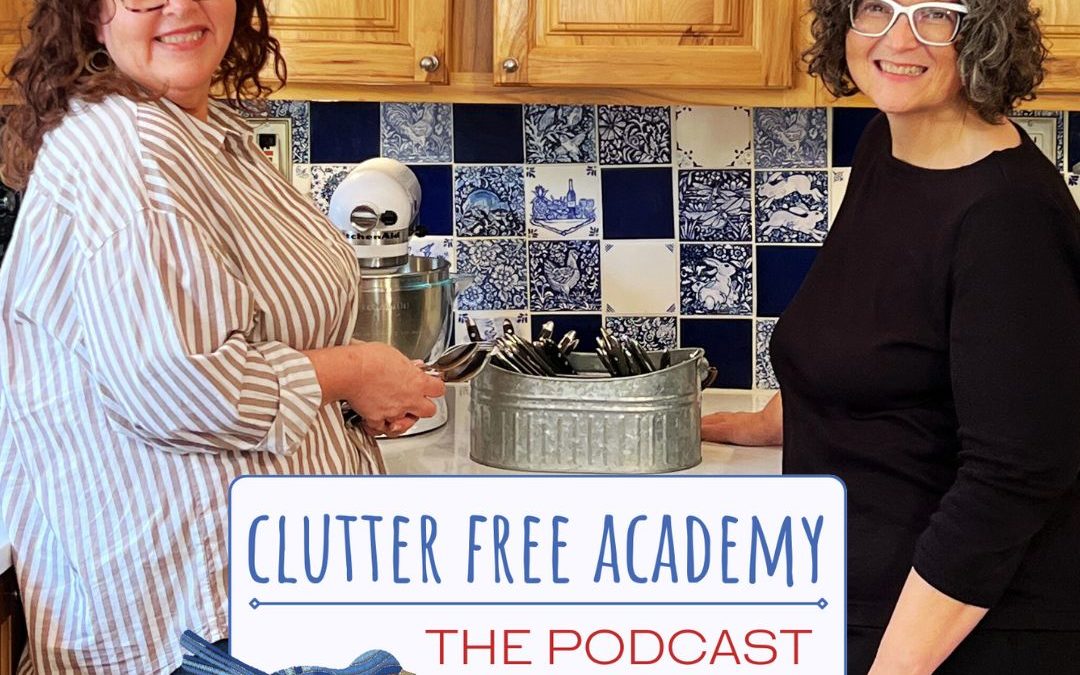


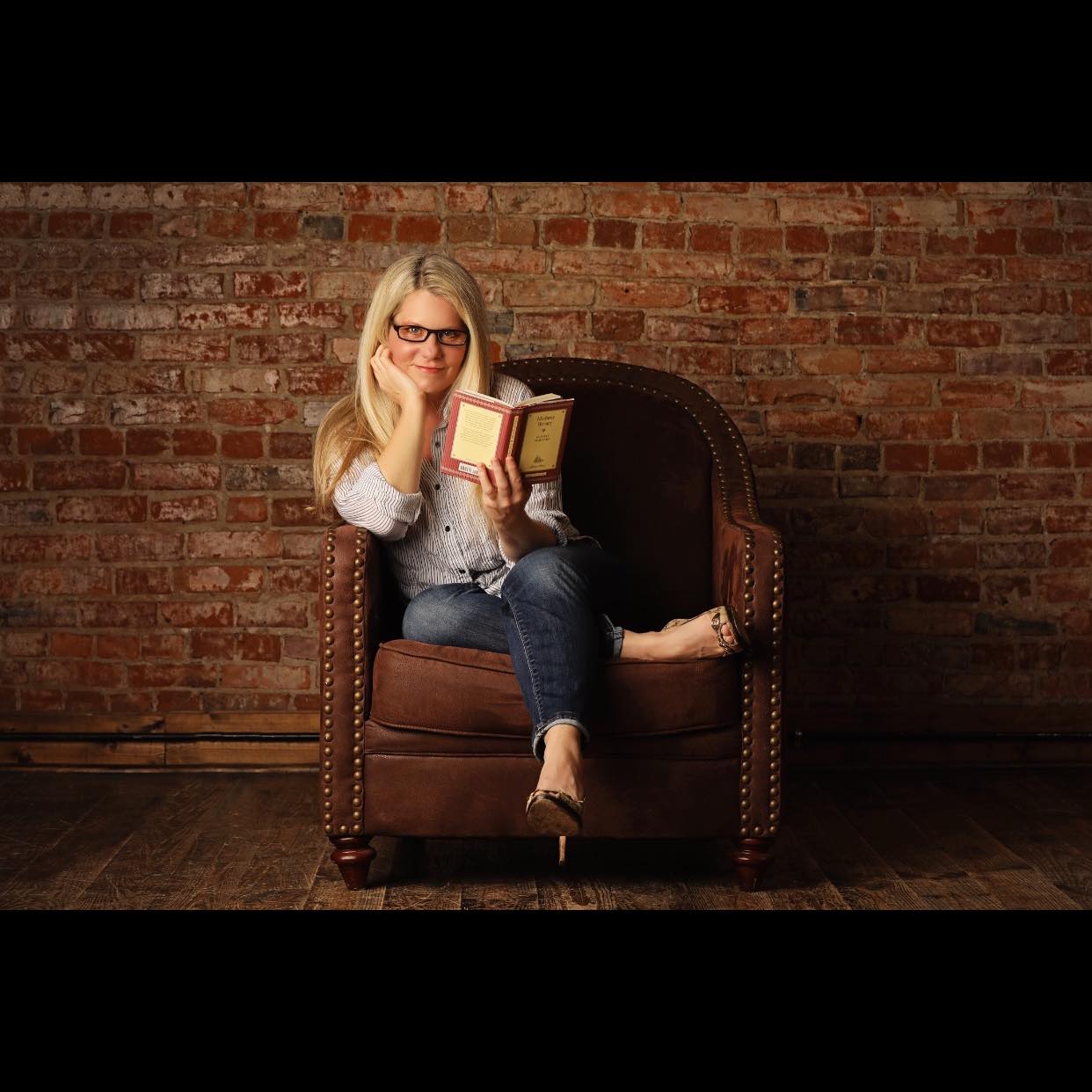
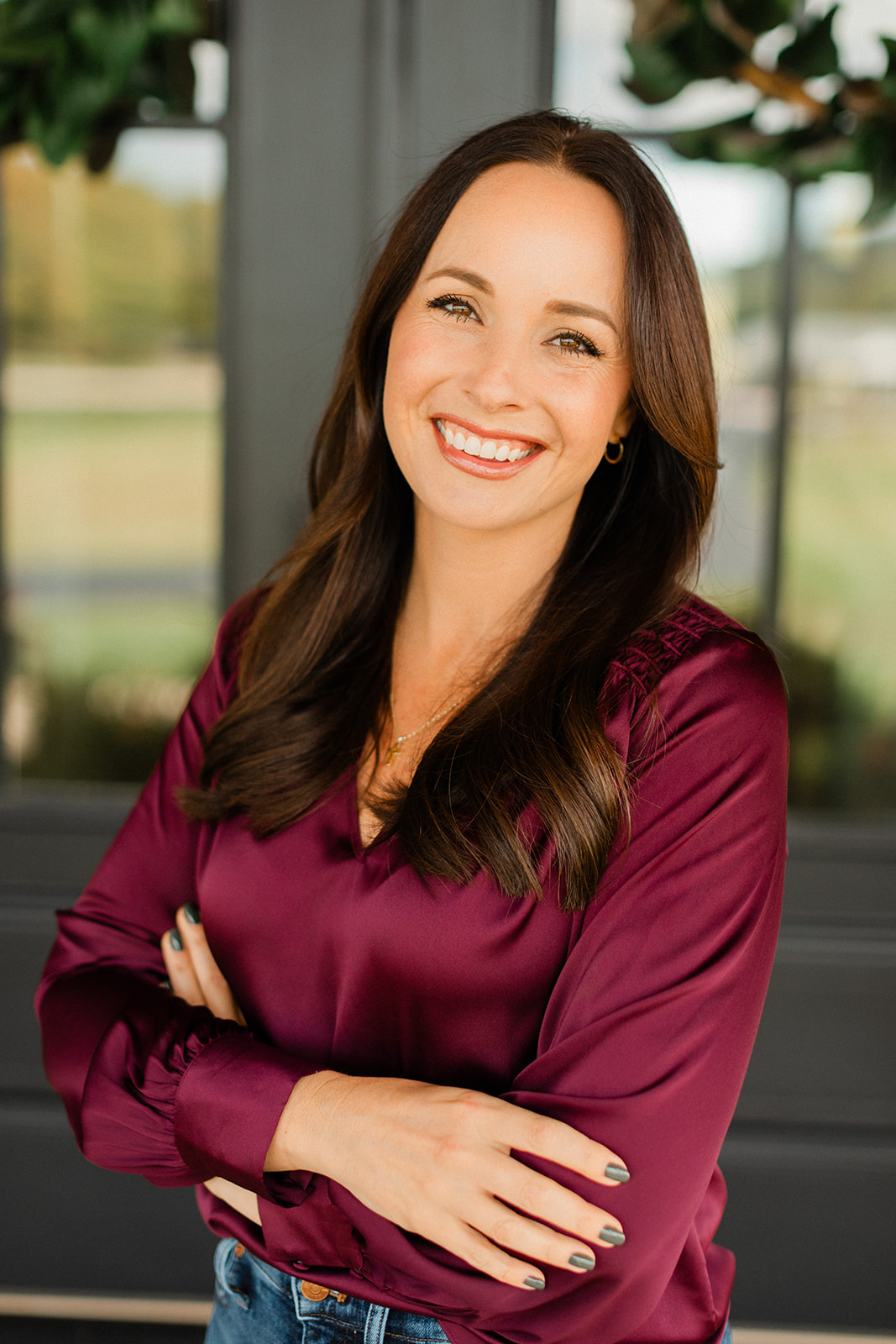
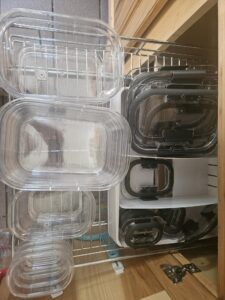 Photo of Kathi’s storage drawer organization as promised!
Photo of Kathi’s storage drawer organization as promised!



